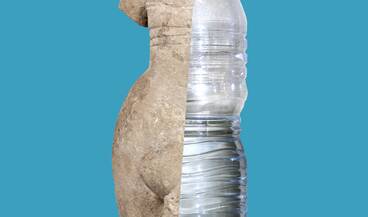Today
10:00 - 17:00
accessibility.openinghours.today-in Forum of Swiss History Schwyz
Today at the Forum of Swiss History Schwyz10:00 - 17:00
accessibility.openinghours.today-in Forum of Swiss History Schwyz
Today at the Forum of Swiss History SchwyzTuesday till Sunday 10:00 - 17:00
Monday closed
Einkaufsnacht im Lichtermeer 05.12.2025 18:00 - 22:00
Immaculate Conception 08.12.2025 closed
Christmas Eve 24.12.2025 10:00 - 14:00
Christmas 25.12.2025 closed
St. Stephen´s Day 26.12.2025 10:00 - 17:00
New Year´s Eve 31.12.2025 10:00 - 14:00
New Year´s Day 01.01.2026 closed
Saint Berchtold 02.01.2026 10:00 - 17:00
Epiphany 06.01.2026 10:00 - 17:00
Carnival Thursday 12.02.2026 10:00 - 17:00
Carnival Monday 16.02.2026 closed
Shrove Tuesday 17.02.2026 10:00 - 17:00
Saint Joseph 19.03.2026 10:00 - 17:00
Good Friday 03.04.2026 closed
Easter 05.04.2026 10:00 - 17:00
Easter Monday 06.04.2026 10:00 - 17:00
Labour Day 01.05.2026 10:00 - 17:00
Mother´s Day 10.05.2026 10:00 - 17:00
Ascension Day 14.05.2026 10:00 - 17:00
Whitsun 24.05.2026 10:00 - 17:00
Whit Monday 25.05.2026 10:00 - 17:00
Corpus Christi 04.06.2026 10:00 - 17:00
Swiss National Holiday 01.08.2026 10:00 - 17:00
Assumption Day 15.08.2026 10:00 - 17:00
accessibility.openinghours.special_opening_hours.link
Show all10:00 - 17:00
accessibility.openinghours.today-in Forum of Swiss History Schwyz
Today at the Forum of Swiss History SchwyzTuesday till Sunday 10:00 - 17:00
Monday closed
Einkaufsnacht im Lichtermeer 05.12.2025 18:00 - 22:00
Immaculate Conception 08.12.2025 closed
Christmas Eve 24.12.2025 10:00 - 14:00
Christmas 25.12.2025 closed
St. Stephen´s Day 26.12.2025 10:00 - 17:00
New Year´s Eve 31.12.2025 10:00 - 14:00
New Year´s Day 01.01.2026 closed
Saint Berchtold 02.01.2026 10:00 - 17:00
Epiphany 06.01.2026 10:00 - 17:00
Carnival Thursday 12.02.2026 10:00 - 17:00
Carnival Monday 16.02.2026 closed
Shrove Tuesday 17.02.2026 10:00 - 17:00
Saint Joseph 19.03.2026 10:00 - 17:00
Good Friday 03.04.2026 closed
Easter 05.04.2026 10:00 - 17:00
Easter Monday 06.04.2026 10:00 - 17:00
Labour Day 01.05.2026 10:00 - 17:00
Mother´s Day 10.05.2026 10:00 - 17:00
Ascension Day 14.05.2026 10:00 - 17:00
Whitsun 24.05.2026 10:00 - 17:00
Whit Monday 25.05.2026 10:00 - 17:00
Corpus Christi 04.06.2026 10:00 - 17:00
Swiss National Holiday 01.08.2026 10:00 - 17:00
Assumption Day 15.08.2026 10:00 - 17:00
accessibility.openinghours.special_opening_hours.link
Show allPodium
Das Konzept der Kreislaufwirtschaft ist nicht neu. Dass die Idee dahinter – langlebige Produkte, einfache Reparaturen sowie das Weiter- oder Wiederverwenden der Rohstoffe – schon tausende Jahre existiert, zeigt die Ausstellung «Das zweite Leben der Dinge. Stein, Metall, Plastik» auf. Mit dem Begriff «Kreislaufwirtschaft» kommen diese alten Prinzipien in einem neuen Gewand daher.
Aktuell ist die Kreislaufwirtschaft noch eine Nische. Nicht mehr als 10 Prozent aller Unternehmen produzieren auf diese Weise. Das Potential ist jedoch enorm. Unter anderem auch deshalb, weil bei vielen Menschen der Wille etwas zu verändern da ist.
Wie gelingt es, die persönlichen Überzeugungen erfolgreich auf Unternehmen zu übertragen? Wie können Modelle der Kreislaufwirtschaft profitabel sein? Wo liegen die Herausforderungen und welche Rolle spielt die Politik?
Im Podiumsgespräch diskutieren u. a. Kilian Wiget, Gründer und CEO von WE ARE ZRCL, und Fabian Takacs, Universität St: Gallen. Moderation: Marcel Huwyler, Journalist, Autor und Kulturvermittler Forum Schweizer Geschichte Schwyz.
Die Ausstellung kann für Podiumsteilnehmende ab 17:30 Uhr besucht werden. Im Anschluss an das Gespräch gibt es einen kleinen Apéro.
Zeughausstrasse 5
6430 Schwyz



Our throw-away and consumerist society is a recent phenomenon in the history of humanity. The way people handled materials and objects used to be driven by scarcity and shortages. Up until the Industrial Revolution in the late 18th century, it was normal to hand down clothes, repair tools, reuse building materials, melt down bronze objects to make new ones, and recycle glass containers. Whether they were made from fabric, metal, stone or glass – it was possible for all manner of things to have a second, third, or even infinite life. The exhibition takes a look at the methods of the circular economy past and present. Objects from the Stone Age to the present day show how their history can raise awareness of the value of things.